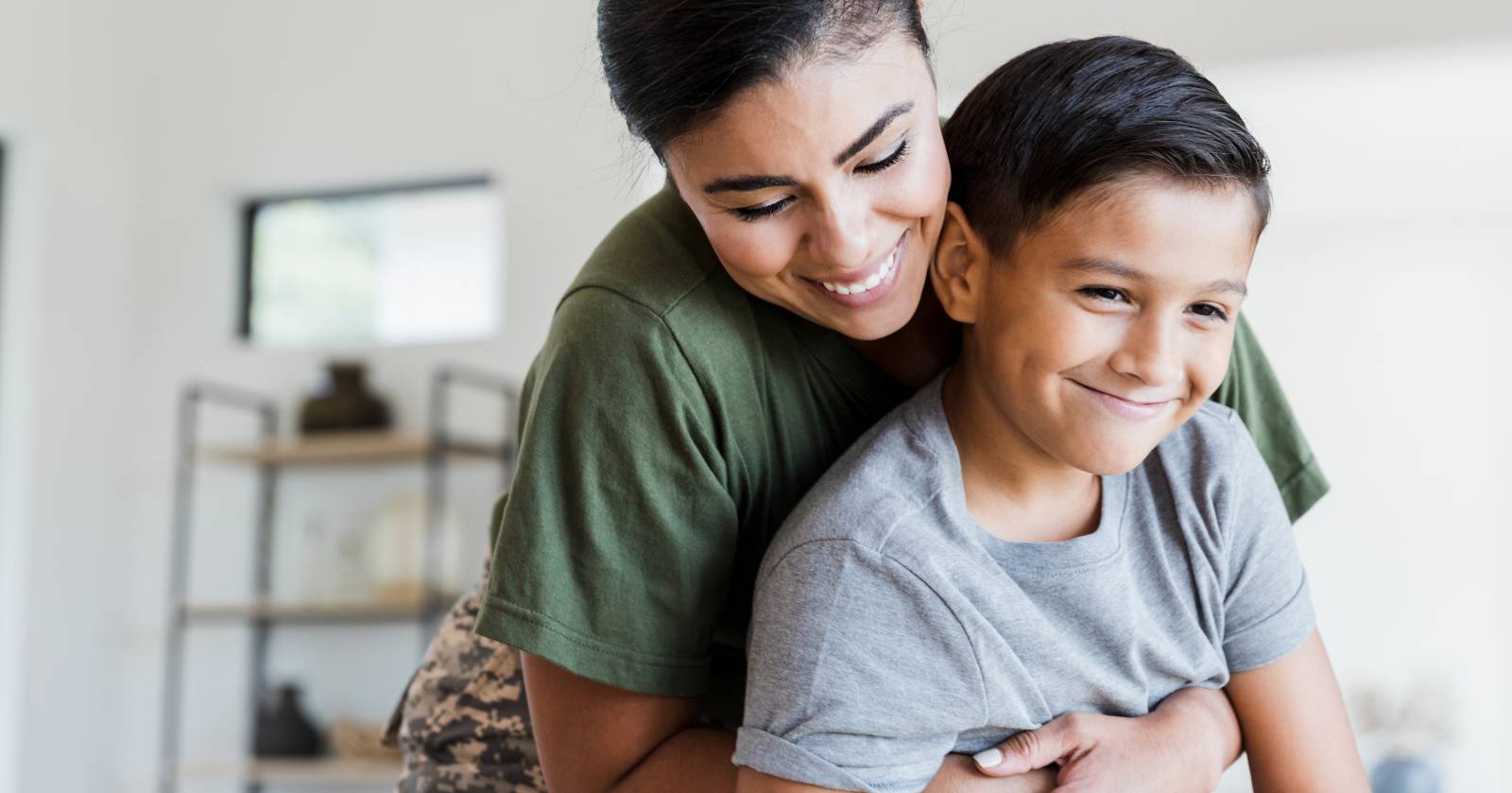You are here
Building Evaluation Capacity to Prevent Veteran Suicide
Empowering Veteran-Serving Organizations to use data for upstream suicide prevention
Veterans are at higher risk for suicide than the general population.
Suicide is a serious and growing problem in the U.S. The number of deaths by suicide increased by about 36 percent between 2000 and 2022. For veterans, suicide was the twelfth leading cause of death in 2022, according to the U.S. Department of Veteran Affairs. That year, there were 6,407 suicides among veterans, an average of 18 each day.
Veterans are at higher risk for suicide than the general population. Many face unique challenges including stress from relationships, health issues, substance misuse, financial problems or trouble finding housing or a job.
But suicide is preventable. Suicide is rarely caused by any single factor, which means there are multiple opportunities for prevention. That’s where Veteran-Serving Organizations (VSOs) play a critical role. VSOs provide essential programs and services that help address the root causes of suicide risk, offering support with employment, housing, education, life skills, mental health and community connection. While many VSOs don’t label their work as suicide prevention, their efforts directly impact the health and well-being of veterans.
However, many VSOs face challenges with program evaluation, the process of collecting data to understand what impact their programs are making and how they can be improved. These challenges include limited time, resources and evaluation expertise. With the right tools and support, VSOs can build capacity to evaluate their programs, improve outcomes and tell a stronger story about their role in keeping veterans safe and connected.
About the VSPE Program
The Veteran Suicide Prevention Evaluation (VSPE) Program is designed to help VSOs evaluate and improve programs that reduce suicide risk among veterans.
Since 2018, the CDC Foundation has partnered with the Centers for Disease Control and Prevention (CDC) to carry out this effort. In 2024, Safe States Alliance joined as a key partner, bringing their strong network and expertise in injury and violence prevention to further support this work.
Through these partnerships, we supported a total of 24 VSOs to date, helping them improve evaluation practices, apply proven strategies for suicide prevention, and communicate their impact. To expand reach beyond VSO grantees, we launched the VSPE Resource Hub, a growing collection of resources designed to make program evaluation more accessible and actionable for the wider VSO community.
Our Work in Action
The VSPE Program is making a difference by helping VSOs deepen their impact, reach more veterans and share their success in measurable ways.
Success Stories
Arizona Coalition for Military Families (ACMF)
With support from VSPE, ACMF strengthened evaluation of its Be Connected program, improving how veterans access support across key areas like housing, employment and health. They developed tools now used by other communities, like the Veteran Suicide Vulnerability Index and shared, “Things that would have taken two to four years… we’ve done in a year because of this project.”
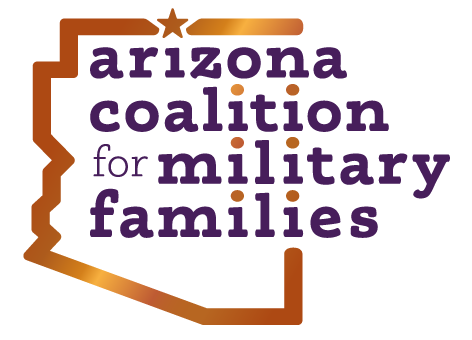
America’s Warrior Partnership (AWP)
Through three cycles of VSPE funding, AWP enhanced its Community Integration Model to better serve over 60,000 veterans, including in the Navajo Nation and Alaska. They used evaluation to show the impact of their program, strengthen partnerships and increase their reach in communities. Today, AWP leads an evaluation community of practice, helping others build stronger, more connected veteran support systems.
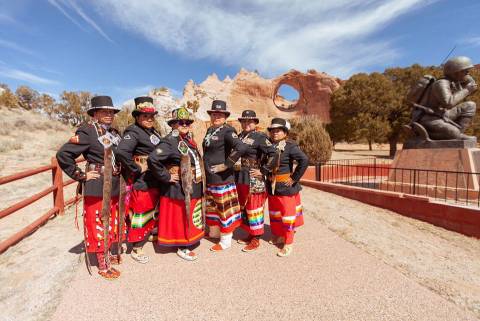
Objective Zero Foundation (OZF)
With support from VSPE, OZF transformed how it evaluates and improves Objective Zero, its peer-support app, helping thousands of veterans and service members connect to care. Using skills gained through the program, they boosted user engagement, strengthened their training programs, quadrupled grant funding and launched a new evaluation subcommittee to sustain momentum. Their data-driven approach helps veterans get support before a crisis hits.
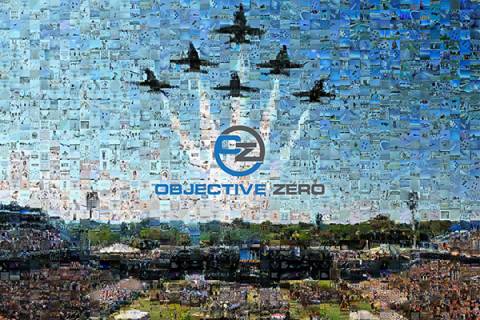
The Warrior Alliance (TWA)
Through VSPE, TWA strengthened how they evaluate and deliver services that help veterans successfully transition to civilian life. TWA used data to build a stronger veteran intake process, streamline partner onboarding, and grow their outreach by 35 percent. They launched new initiatives, including a statewide legal services network and career support programs. Evaluation is now embedded into every part of their operations, continuing to drive improvements.
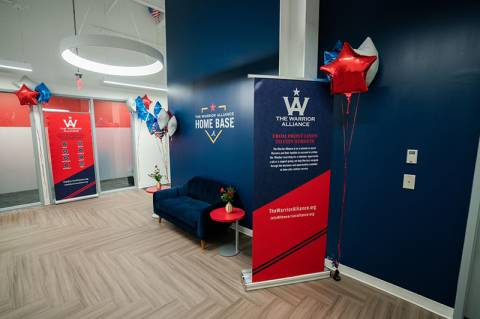
VSO Voices: In Their Own Words
At Camp Southern Ground, Warrior Week brings veterans together to discover their strengths and find a meaningful path forward as they transition from military service. U.S. Air Force Veteran Lacy Gunnoe, wellbeing director for veteran programs at Camp Southern Ground, describes this VSO's mission and the role of Warrior Week. Learn more.
U.S. Army Veteran Brandon Healy, warrior wellbeing manager at Camp Southern Ground, explains how the VSPE program strengthened his connection to his work at Camp Southern Ground.
Patrick Brown, manager of military outreach at The Warrior Alliance and a veteran, talks about the vital role of VSOs and what Veterans Day means to him.
VSPE Resource Hub
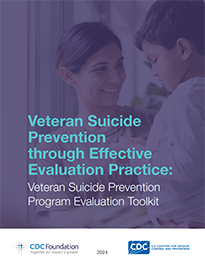
To make program evaluation more accessible to a wider audience, the CDC Foundation, Safe States Alliance and CDC collaborated with participating VSOs to develop the VSPE Resource Hub, a collection of free, practical evaluation tools and resources, including:
- VSPE Core Toolkit: Plain language guidance on key evaluation concepts and practices.
- VSPE Practice Workbook: Hands-on worksheets that help VSOs apply what they’ve learned to their own programs.
- VSPE Additional Resources: Curated links to other trusted materials to better educate VSOs about evaluation.
The VSPE Resource Hub, based on the CDC Framework for Program Evaluation in Public Health, is designed to be flexible—whether VSOs are starting from scratch or looking to strengthen existing evaluation efforts.
VSPE Awardees Include:
Learn more about the VSPE program’s impact:
- Read an evaluation on the first three years of the VSPE program—it shows positive impacts on VSO work
- Read about the common theme that emerged when VSOs presented their evaluation findings at a VSPE convening
- Listen to a podcast episode: “I truly think we’re years ahead of where we would’ve been without VSPE”
- Read how VSPE helped organizations like The Warrior Alliance and Project Sanctuary deepen their impact
Learn about VSPE program updates over the years:
- 2018-2019: VSPE awards five VSOs
- Read what Year 1 VSOs had to say about the VSPE program
- Learn how VSPE grantee StackUp connects veterans and civilians through a shared passion for gaming
- 2019-2020: VSPE awards seven VSOs
- VSPE hosts virtual meeting to facilitate knowledge transfer and strategic partnership building among VSOs
- See what Year 2 of VSPE achieved
- 2020-2021: VSPE awards seven VSOs
- 2021-2022: VSPE awards four VSOs, and new opportunity to participate in community of practice
- VSPE hosts an Open Space networking event where CDC partners and VSO grantees shaped the agenda and goals
- VSPE convenes public health, VSOs, and partners to advance upstream suicide prevention
- 2023-2024: VSPE awards six VSOs
Learn more about other ways we have supported veteran suicide prevention efforts:
Warrior Built: Strengthening the Eco-System for Veteran Suicide Prevention
This program is supported by the Centers for Disease Control and Prevention (CDC) of the U.S. Department of Health and Human Services (HHS) via multiple financial assistance awards totaling $2,940,000 with 100 percent funded by CDC/HHS. The contents are those of the author(s) and do not necessarily represent the official views of, nor an endorsement by, CDC/HHS or the U.S. Government.
- Centers for Disease Control and Prevention
- United States of America
